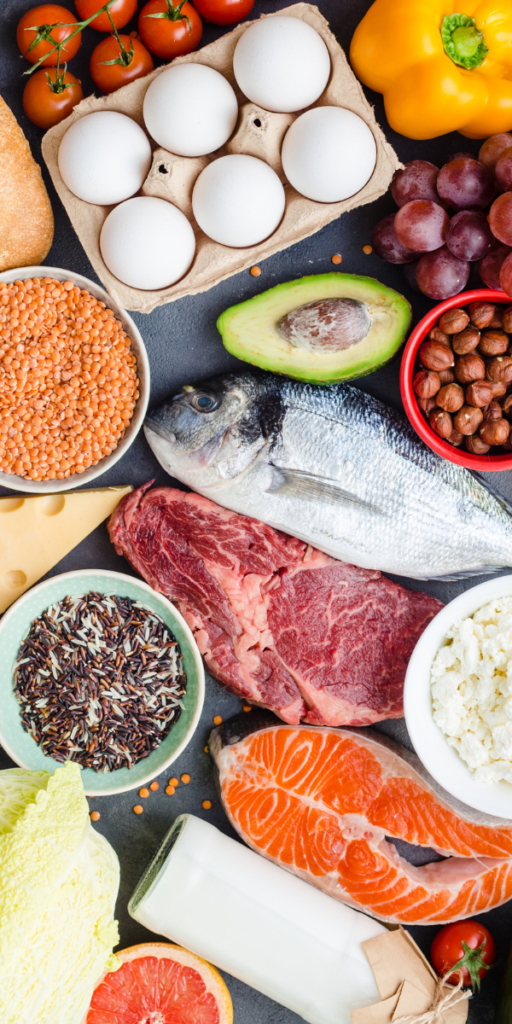 Fueling Your Body for Achieving Optimum Daily Nutrition
Fueling Your Body for Achieving Optimum Daily Nutrition
In today’s fast-paced world, achieving optimum daily nutrition has become increasingly important for maintaining good health and vitality. The food we consume directly impacts our physical and mental well-being, influencing energy levels, immune function, cognitive performance, and overall quality of life. In this article, we will explore key principles and strategies to help you achieve optimal nutrition every day, empowering you to fuel your body for long-term health and vitality.
Balanced Diet: The Foundation of Optimum Nutrition

A balanced diet forms the cornerstone of optimum nutrition. It involves consuming a wide variety of nutrient-dense foods in appropriate proportions. The major food groups to include in your daily diet are:
a. Fruits and Vegetables: Aim to include a rainbow of fruits and vegetables in your diet, as they provide essential vitamins, minerals, antioxidants, and dietary fiber. Incorporate a mix of raw and cooked options to maximize nutrient intake.
b. Whole Grains: opt for whole grains such as brown rice, quinoa, whole wheat bread, and oats. These provide complex carbohydrates, dietary fiber, and important B vitamins.
c. Lean Proteins: Include lean sources of protein like chicken, fish, tofu, beans, and lentils. Protein is essential for muscle repair, immune function, and hormone production.
d. Healthy Fats: Incorporate sources of healthy fats like avocados, nuts, seeds, and olive oil. These provide essential fatty acids that support brain health, hormone balance, and nutrient absorption.
e. Dairy or Dairy Alternatives: Choose low-fat dairy products or non-dairy alternatives fortified with calcium and vitamin D.
Portion Control: Balancing Quantity and Quality
A person can achieve optimum daily nutrition by not only focusing on the quality of food but also practicing portion control. It’s essential to be mindful of portion sizes to avoid overeating. Use visual cues, such as a palm-sized portion for proteins, a fist-sized portion for grains, and a thumb-sized portion for fats. Additionally, listening to your body’s hunger and fullness cues can help you develop a healthy relationship with food and prevent unnecessary calorie consumption
Hydration: The Power of Water
Staying properly hydrated is often overlooked but crucial for achieving optimum nutrition. Water is involved in nearly every bodily function, including digestion, nutrient absorption, metabolism, and waste elimination. Aim to drink at least eight cups (64 ounces) of water per day. You can also include hydrating options like herbal teas, infused water, and fresh juices (in moderation).
Micronutrients: Essential Vitamins and Minerals
Micronutrients, such as vitamins and minerals, play a vital role in maintaining optimal health. Ensure your daily diet includes a variety of foods rich in essential micronutrients:
a. Vitamin C: Found in citrus fruits, berries, bell peppers, and leafy greens, vitamin C supports immune function and collagen production.
b. Iron: Include iron-rich foods like lean red meat, beans, spinach, and fortified cereals. Iron is crucial for oxygen transport and energy production.
c. Calcium: Consume dairy products, fortified plant-based milks, leafy greens, and almonds to maintain strong bones and teeth.
d. Vitamin D: Expose your skin to sunlight or consider vitamin D-fortified foods like fatty fish, eggs, and fortified dairy alternatives. Vitamin D aids in calcium absorption and supports immune function.
e. B Vitamins: Consume whole grains, legumes, eggs, and leafy greens to ensure adequate intake of B vitamins, which are involved in energy production and cognitive function.
Meal Planning and Preparation: Set Yourself Up for Success
Planning and preparing meals in advance can help you achieve optimum daily nutrition. Allocate time each week to plan your meals, create a shopping list, and batch cook nutritious meals. This approach saves time, ensures balanced meals, and reduces the likelihood of relying on unhealthy convenience options.
Mindful Eating: Cultivating a Positive Relationship with Food
Practicing mindful eating involves being fully present while consuming food, paying attention to taste, texture, and satiety cues. Slow down, savor each bite, and listen to your body’s signals of hunger and fullness. This practice promotes healthy digestion, prevents overeating, and fosters a positive relationship with food.
Conclusion:
Achieving optimum daily nutrition is a lifelong commitment to nourishing your body and mind with wholesome foods. By adopting a balanced diet, practicing portion control, staying hydrated, and prioritizing essential micronutrients, you can fuel your body for optimal health and vitality. Additionally, incorporating meal planning, preparation, and mindful eating habits can further enhance your overall well-being. Remember, small, consistent steps toward healthier choices each day can have a profound impact on your long-term health journey. Start today, and empower yourself with the knowledge and tools to achieve optimum daily nutrition.



Leave a Reply